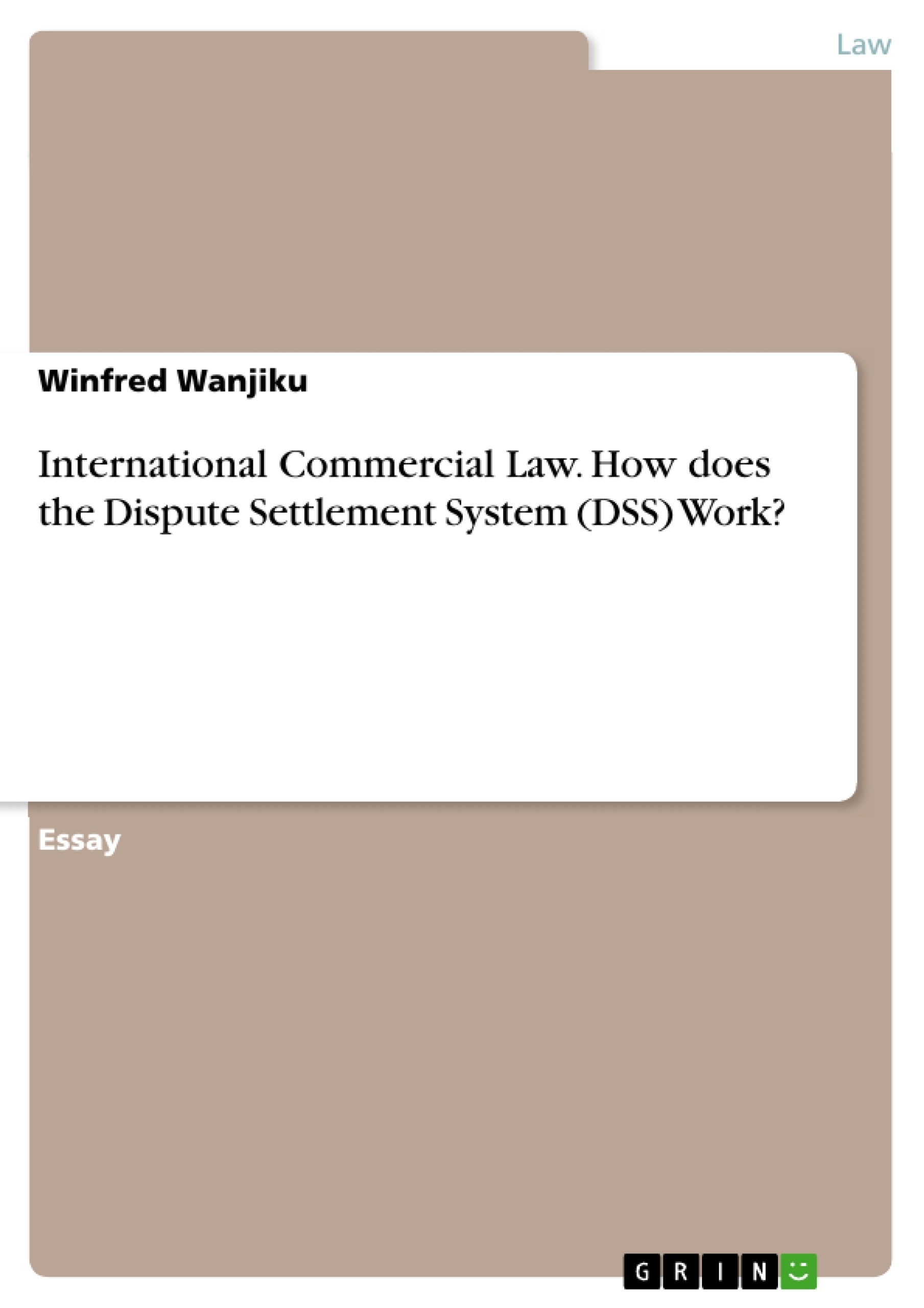This paper will discuss how the Dispute Settlement System (DSS) works and the problems the system has been encountering. The paper will also discuss the problems affecting the system including adherence of the DSS to the Dispute Settlement Understanding (DSU), US domination and criticism, compliance, and constraint of resources.
The Dispute Settlement Understanding is used by the World Trade Organization (WTO) as one of the supporting pillars in the multilateral trading system. The efficient resolution of disputes is the organisation’s way to contribute to global economic stability. The system is the WTO's judicial arm developed to help the member countries solve trade disputes that might arise between them; it also has enforcement mechanisms.
When compared to the previous system, the General Agreement on Tariffs and Trade (GATT 1947), DSS is formal and well designed with clear stages and demands more discipline when settling disputes . However, despite the paramount success the system has achieved over the twenty-four years of its existence, the DSU has had various problems.
Inhaltsverzeichnis (Table of Contents)
- Introduction
- Dispute Resolution Understandingand Processes of the World Trade Organization
Zielsetzung und Themenschwerpunkte (Objectives and Key Themes)
This paper explores the Dispute Settlement Understanding (DSU) employed by the World Trade Organization (WTO) to resolve trade disputes among its member countries. The paper examines the DSU's effectiveness, highlighting the success it has achieved while also analyzing the challenges it faces.
- The DSU's role in maintaining global economic stability and protecting member countries' rights and obligations.
- The success of the DSU in resolving trade disputes and its comparative effectiveness compared to other international jurisdictions.
- Challenges facing the DSU, including issues related to compliance, US domination, and resource constraints.
- The DSU's dispute resolution process, encompassing consultation, arbitration, ruling, and reinforcement.
- The DSU's enforcement mechanisms, including the implementation of decisions, compliance panels, and the possibility of trade sanctions.
Zusammenfassung der Kapitel (Chapter Summaries)
- Introduction: This introductory chapter provides a brief overview of the Dispute Settlement Understanding (DSU) and its role in the WTO. It highlights the importance of efficient dispute resolution in maintaining global economic stability and outlines the key challenges facing the DSU.
- Dispute Resolution Understandingand Processes of the World Trade Organization: This chapter delves into the specific mechanisms and processes of the DSU, emphasizing its significance in preserving the rights and obligations of WTO members. It examines the stages involved in dispute resolution, including consultation, panel establishment, appeal, and implementation. The chapter also highlights the DSU's compulsory nature and the various enforcement measures available.
Schlüsselwörter (Keywords)
Dispute Settlement Understanding, World Trade Organization, trade disputes, global economic stability, dispute resolution process, WTO agreements, compliance, US domination, resource constraints, enforcement mechanisms, trade sanctions.
Frequently Asked Questions
What is the WTO Dispute Settlement System (DSS)?
The DSS is the judicial arm of the World Trade Organization (WTO). It is designed to help member countries resolve trade disputes through a formal, structured process involving consultation, panels, and appeals.
What is the Dispute Settlement Understanding (DSU)?
The DSU is the main agreement that sets out the rules and procedures for settling disputes within the WTO. It is considered a pillar of the multilateral trading system, ensuring global economic stability.
How does the DSS differ from the previous GATT system?
Compared to the 1947 GATT system, the current DSS is more formal, better designed with clear stages, and demands more discipline from members. It also includes stronger enforcement mechanisms.
What are the main challenges facing the WTO's dispute system?
The system faces several problems, including issues with compliance, perceived US domination, criticism of its rulings, and a lack of resources for smaller nations to participate effectively.
What happens if a country does not comply with a WTO ruling?
The DSS has enforcement mechanisms. If a country fails to implement a decision, the WTO can authorize trade sanctions or compensation measures to protect the rights of the aggrieved member.
- Citation du texte
- Winfred Wanjiku (Auteur), 2019, International Commercial Law. How does the Dispute Settlement System (DSS) Work?, Munich, GRIN Verlag, https://www.grin.com/document/512762



